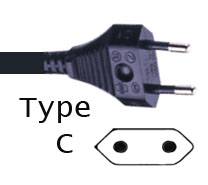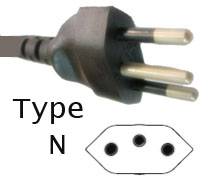Brazil, the largest country in South America, is a land of breathtaking natural beauty, vibrant culture, and diverse landscapes. From the bustling streets of Rio de Janeiro to the pristine beaches of Fernando de Noronha and the vast expanse of the Amazon Rainforest, Brazil offers travelers a wealth of experiences. Explore the iconic landmarks of Rio, immerse yourself in the rhythms of samba and bossa nova, or embark on an adventure into the heart of the Amazon. With its rich history, colorful festivals, and warm hospitality, Brazil beckons visitors to discover its endless treasures and unforgettable moments.
Ultimate Brazil Travel Guide
Destinations
Best time to go
The best time to visit Brazil depends on the region and the activities you have planned. Generally, the dry season (May to September) is ideal for visiting cities and coastal areas, while the wet season (December to March) is best for exploring the Amazon Rainforest and other inland regions. Keep in mind that Brazil’s climate varies widely depending on the region, so it’s essential to research specific destinations before planning your trip.
Average Temperature By Month
January: 25°C to 32°C (77°F to 90°F)
February: 25°C to 32°C (77°F to 90°F)
March: 24°C to 31°C (75°F to 88°F)
April: 23°C to 30°C (73°F to 86°F)
May: 21°C to 28°C (70°F to 82°F)
June: 20°C to 27°C (68°F to 81°F)
July: 20°C to 27°C (68°F to 81°F)
August: 21°C to 28°C (70°F to 82°F)
September: 22°C to 29°C (72°F to 84°F)
October: 23°C to 30°C (73°F to 86°F)
November: 24°C to 31°C (75°F to 88°F)
December: 25°C to 32°C (77°F to 90°F)
What To Expect
Time Zone:
Brazil spans four time zones, ranging from Brasília Time (BRT) to Amazon Time (AMT). The most common time zones are Brasília Time (BRT) and Brasília Summer Time (BRST), which are three hours behind Coordinated Universal Time (UTC-3) and two hours behind during daylight saving time.
Currency:
The official currency of Brazil is the Brazilian Real (BRL). Credit cards are widely accepted in major cities and tourist areas, but it's advisable to carry cash for smaller purchases and when visiting rural areas.
Language:
Portuguese is the official language of Brazil and is spoken by the majority of the population. English is also spoken, particularly in tourist areas and among those working in the tourism industry, but proficiency may vary.
Airport:
Brazil has several major international airports, including Guarulhos International Airport (GRU) in São Paulo, Galeão International Airport (GIG) in Rio de Janeiro, and Brasília International Airport (BSB) in Brasília. These airports serve as gateways to Brazil and offer connections to destinations around the world.
How To Get Around
Public Transportation: Brazil’s major cities have comprehensive public transportation systems, including buses, subways, and trains. In Rio de Janeiro, the metro and buses are the most common modes of transportation. In more rural areas, transportation options may include minibusses and shared taxis.
Rental Cars: Renting a car is a convenient option for exploring Brazil independently, especially in rural areas and regions with limited public transportation. Several car rental agencies operate at airports and in major cities.
Domestic Flights: Domestic flights are available between major cities and regional airports. Several airlines operate domestic routes, providing convenient connections across the country.
Average Temperature By Month:
January: 25°C to 32°C (77°F to 90°F)
February: 25°C to 32°C (77°F to 90°F)
March: 24°C to 31°C (75°F to 88°F)
April: 23°C to 30°C (73°F to 86°F)
May: 21°C to 28°C (70°F to 82°F)
June: 20°C to 27°C (68°F to 81°F)
July: 20°C to 27°C (68°F to 81°F)
August: 21°C to 28°C (70°F to 82°F)
September: 22°C to 29°C (72°F to 84°F)
October: 23°C to 30°C (73°F to 86°F)
November: 24°C to 31°C (75°F to 88°F)
December: 25°C to 32°C (77°F to 90°F)
Plugs:
Brazil uses electrical outlets that are compatible with Type C and Type N plugs. Type C plugs have two round pins, while Type N plugs have three round pins in a triangular formation. The standard voltage is 127 volts AC, with a frequency of 60Hz.
VPN:
While Brazil generally has unrestricted internet access, using a virtual private network (VPN) can provide added security and privacy, especially when accessing public Wi-Fi networks.
Safety:
Brazil is a popular tourist destination, but certain areas may have safety concerns related to crime and violence. It's essential to research your destination and exercise caution, particularly in urban areas and tourist hotspots. Avoid displaying valuables in public, be vigilant of your surroundings, and use reputable transportation services. Additionally, follow local laws and regulations, respect cultural customs, and stay informed about any travel advisories or alerts issued by authorities.
Credit Cards and Banks
Credit Cards:
Credit card acceptance in Brazil is widespread, especially in urban areas, tourist destinations, hotels, restaurants, and larger shops. Visa and MasterCard are the most commonly accepted cards, followed by American Express and Elo. Contactless payments, including Apple Pay and Google Pay, are also becoming increasingly common.
Debit Cards:
Debit cards are commonly used in Brazil for ATM withdrawals and some purchases. Most banks issue debit cards that can be used domestically and internationally. Make sure to inform your bank of your travel plans to avoid any issues with card usage abroad.
ATMs:
ATMs are readily available in cities, towns, and tourist areas throughout Brazil, allowing you to withdraw Brazilian Reais (BRL). Most ATMs accept international cards, but it’s advisable to use ATMs located inside banks or major shopping centers for security. Some ATMs may have withdrawal limits, so plan accordingly.
Currency Exchange:
The official currency of Brazil is the Brazilian Real (BRL). It’s recommended to exchange your currency to Brazilian Reais upon arrival in Brazil. You can exchange major foreign currencies at banks, currency exchange booths, and some hotels.
Banks:
Major banks in Brazil include:
- Banco do Brasil: One of the largest banks in Brazil, Banco do Brasil offers a wide range of banking services including savings accounts, loans, and foreign exchange.
- Itaú Unibanco: Another prominent bank in Brazil, Itaú Unibanco provides various banking products and services for individuals and businesses.
Traveler’s Checks:
Traveler’s checks are becoming less common worldwide, and their usage is limited in Brazil. It’s recommended to carry cash or use alternative payment methods such as credit/debit cards or ATMs for transactions. However, some banks may still offer services for cashing traveler’s checks, albeit with a fee.
Tips for Banking in Brazil:
- Notify your bank before traveling to Brazil to inform them of your travel plans and avoid any issues with card usage abroad.
- Keep your PIN and card information secure, and be cautious when using ATMs, especially in secluded areas or at night.
- Familiarize yourself with the current exchange rate to ensure fair transactions when exchanging currency.
- Carry small denominations of Brazilian Reais for smaller purchases, as change may be limited.
By understanding the banking system in Brazil, you can ensure a smooth and hassle-free financial experience during your travels in the country.
Locations
Brazil
TRAVEL FACTS
US State Dept Travel Advisory
The US Department of State currently recommends US citizens exercise increased caution in Brazil due to crime. Some areas have increased risk.
https://travel.state.gov/content/travel/en/traveladvisories/traveladvisories.html
Passport/Visa Requirements
For the latest passport and visa requirements for this country, please consult the U.S. State Department’s “Learn About Your Destination” search tool, available through the link below.
US Embassy/Consulate
[55] (61) 3312-7000; US Embassy in Brasilia, SES – Av. das Nações, Quadra 801, Lote 03, 70403-900 – Brasília, DF; https://br.usembassy.gov/; BrasilliaACS@state.gov
LGBTQIA+ Travelers
Telephone Code
55
Local Emergency Phone
Ambulance: 192 or 193 ; Fire: 193; Police: 190
Vaccinations
The CDC and WHO recommend the following vaccinations for Brazil: hepatitis A, hepatitis B, typhoid, yellow fever, rabies, meningitis, polio, measles, mumps and rubella (MMR), Tdap (tetanus, diphtheria and pertussis), chickenpox, shingles, pneumonia, influenza, and COVID-19.
Climate
Mostly tropical, but temperate in south
Currency (Code)
Reals (BRL)
Electricity/Voltage/Plug Type(s)
127 V, 220 V / 60 Hz / plug types(s): C, N


Major Languages
Portuguese
Major Religions
Roman Catholic, Evangelical, Spiritist, Umbanda, Candomble, Afro-Brazilian religions, Jewish
Time Difference
Federal District (UTC -3), Llha Fernando de Noronha (UTC -2), Manaus (UTC -4), Rio Branco (UTC -5)
Potable Water
Opt for bottled water
International Driving Permit
Suggested; if you plan to drive in Brazil, you will need an Inter-American Driving Permit issued by the AAA
Road Driving Side
Right
Tourist Destinations
Rio Carnival; Iguazu Falls; Lencois Maranhenses National Park; Christ the Redeemer Statue; Fernando De Noronha archipelago; Amazon Theatre; Canoa Quebrada; Botanical Garden of Curitiba; Amazon Rain Forest
Major Sports
Soccer, volleyball, basketball, capoeria (Afro-Brazilian martial art that combines elements of dance, acrobatics, and music)
Cultural Practices
Brazilians will often greet with a kiss or a hug, and both men and women will frequently touch you when speaking.
Tipping Guidelines
A standard service fee of 10% is included at most restaurants and bars; if not, you may leave a 10-15% tip. Round up the fare for a taxi driver’s tip. Leave loose change for housekeeping each night.
Souvenirs
Woven hammocks, carved wooden figurines and musical instruments, gold and silver gemstone jewelry, handmade lace, feather headdresses
Traditional Cuisine
Feijoada — kidney or black beans stewed with beef and pork and sometimes vegetables
Please visit the following links to find further information about your desired destination.
World Health Organization (WHO) – To learn what vaccines and health precautions to take while visiting your destination.
US State Dept Travel Information – Overall information about foreign travel for US citizens.
To obtain an international driving permit (IDP). Only two organizations in the US issue IDPs:
American Automobile Association (AAA) and American Automobile Touring Alliance (AATA)
How to get help in an emergency?
Contact the nearest US embassy or consulate, or call one of these numbers:
from the US or Canada – 1-888-407-4747 or from Overseas – +1 202-501-4444
Central Intelligence Agency.
The World Factbook.
/the-world-factbook
(May 8, 2024)



